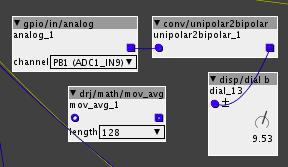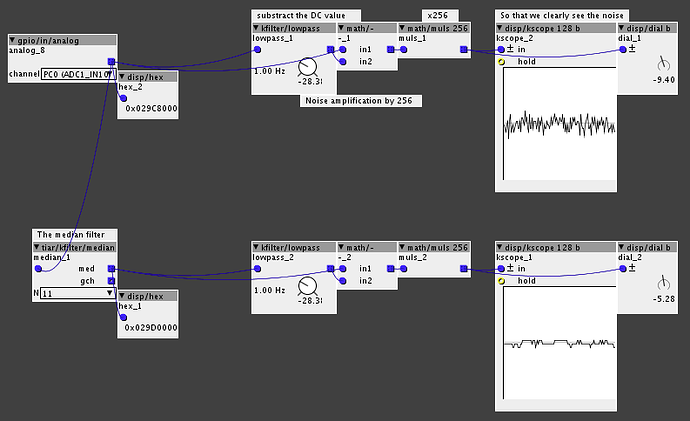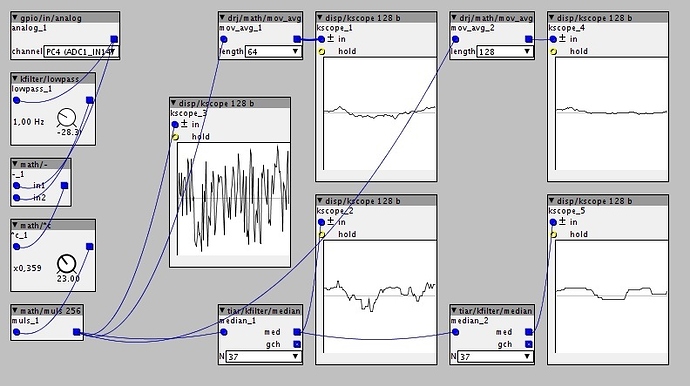Yes. In my case, all the, 15 analog inputs are connected to 10k pots with wires ~20cm long. I added a 47uF cap between gnd and vda and a few 100nF caps. This reduced the noise.
I did not perfected shielding/grounding of enclosures nor used shielding audio wires as suggests @lokki , maybe, this could help. Now, for this project it's too late. I will certainly try that on my next Axoloti project.
Maybe it's not too late for @arunarush 
@arunarush, maybe you can post a snapshot of my patch running on your input so that we can see if it is different from mine.
I've read somewhere that the analog -> digital converters are based on switched capacitors and that the proximity of the converters may be accountable for part of this noise.
Yes.
The input sample is put in the list x[] (it replaces the older sample).
x[] is indexed by the sorted[] table. sorted[] is bubble sorted.
Note: The "gch" output is the "glitch" output corresponding to what have been removed.





